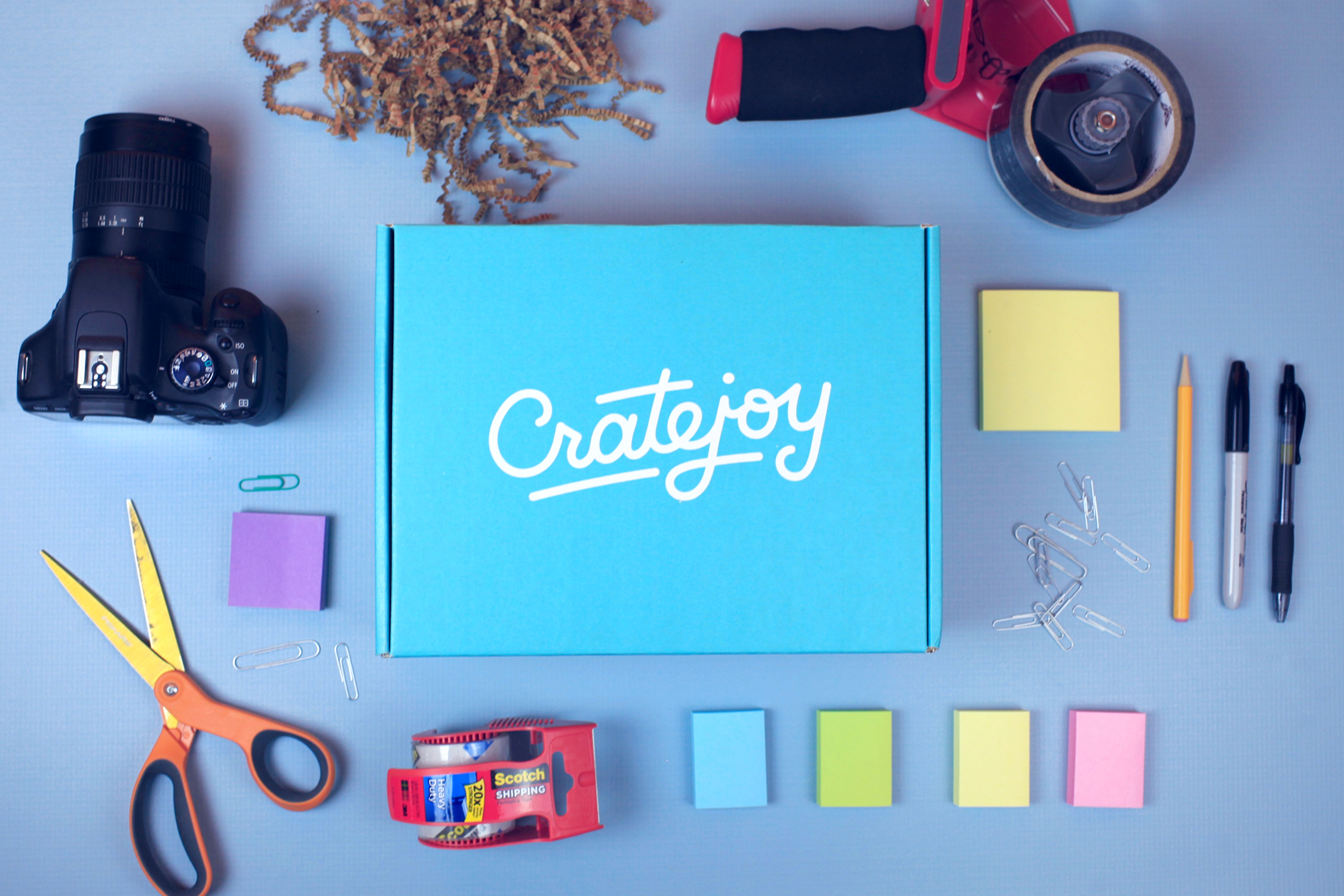Subscription boxes are one of the best ways to shop, period. They offer consumers unique experiences curated around products and themes, introduce new brands, and make checking the mail just plain fun.
On the business side, subscription commerce offers a stable financial model rooted in recurring monthly revenue that can be built around almost every niche – from puzzles to beauty to pets. If there’s an existing community around a product or category online, chances are you can build a subscription box around it.
So, how do you create a subscription box business?
In this article we’ll cover the following steps:
- Start with a great subscription box idea
- Price your subscription box
- Put together a prototype subscription box
- Begin your prelaunch phase
- Set up your website, Marketplace listing, or both
- Start taking orders and ship your subscription boxes
- Success! (And getting the hang of subscription box operations)
- Grow your subscriber base
Step 1: Start with a great subscription box idea

The bottom line: Identify your niche and find a market fit
The foundation of any strong business is a good idea. When it comes to subscription commerce, what separates good ideas from great ones is specificity. Being as detailed as possible when analyzing your market fit, competitive analysis, and customer profile is the first steps in building a successful subscription business. Let’s get started!
Questions to Consider
1. What is your niche?
A niche is best understood as a specific market for products and services. Think fitness, makeup, or food. When settling on your niche, try to get as specific as possible. For example, you could break down the above-mentioned niches into sub-niches like CrossFit, Korean beauty, and international snacks. The more specialized your box is, the easier it is to curate products for a specific audience, enabling you to maximize retention and create a great customer experience.
Pro tip: Looking for subscription box ideas? Check out 50 subscription box ideas you can start today.
2. Who are your competitors?
The subscription box economy is growing, but that doesn’t mean there isn’t space or demand for your box. When looking for competitors, try searching for keywords related to your niche on the Cratejoy Marketplace and see what’s out there. In your research, you’ll want to be able to answer questions like How many boxes are you competing with? What are they offering and at what price? How can you differentiate your box from theirs?
Fun fact: Cratejoy currently is home to boxes in more than 12 categories and 84 subcategories. Find which niche your box falls into on the Marketplace.
3. Who is your customer?
Once you’ve found your niche and market fit, spend some time fleshing out your potential customer (pro tip: this may mean researching your competitors’ customers). Get as granular as you can with this exercise. How old is your customer? Where do they shop? What is their income level? What is their preferred social platform?
Once you’ve started advertising, refer back to these answers and adjust as necessary. You may find, for instance, that your idea of the perfect customer was a 20-something West Coast city dweller, but in reality, they’re a middle-aged mom in the Midwest. Be open to learning who your true customers are over time and pivoting your marketing strategies accordingly.
Check out this example brainstorming session for the luxury subscription box Lilee:
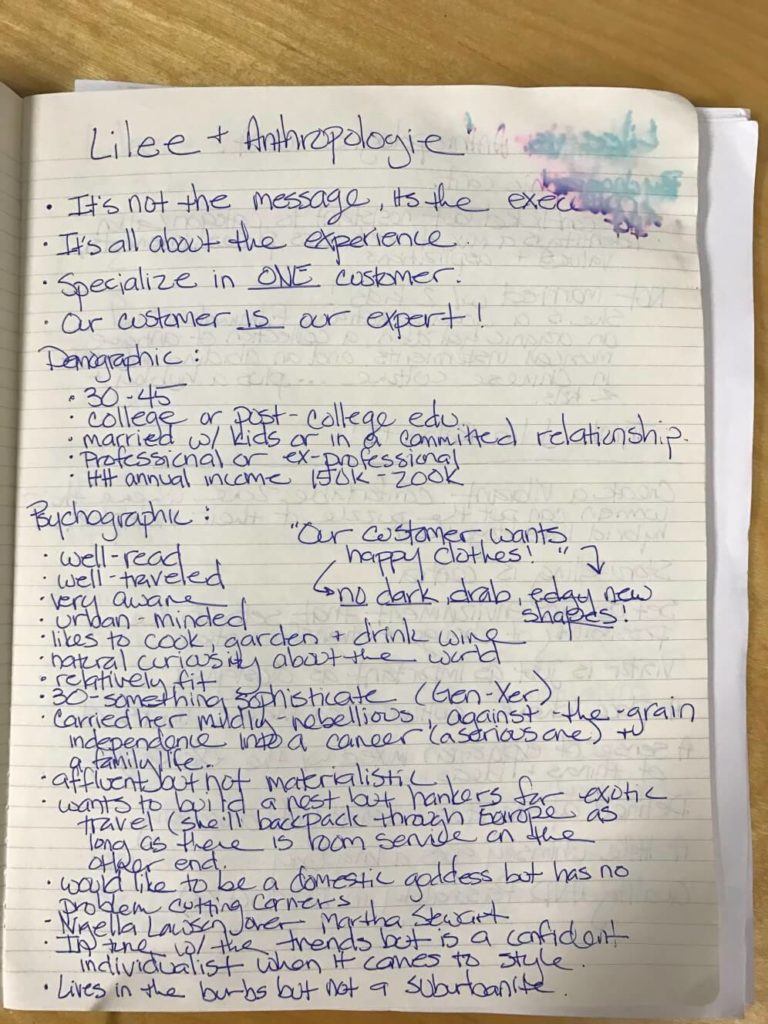
Pro tip: Learn more about customer profiles and 4 more concepts every subscription business owner should know on our blog!
Take it from a merchant:
“We approached our idea from two directions: a business opportunity and a personally fulfilling opportunity. We are big fans of nostalgia, and when looking at subscription boxes, we did not find any that were answering the general nostalgia market. We felt that if we married our personal interest with a gap in the market, we could create a box which would become a time capsule of one’s youth.” –Retro Pop Box
Cratejoy is an all in one subscription commerce platform that includes everything you need to start your own subscription commerce business online. Try it free for 14 days.
Step 2: Price your box

The bottom line: Figure out pricing that will make your business profitable and scalable.
One of the biggest mistakes a subscription box owner can make is mispricing their box. Whether you’re pricing too low to stay competitive or pricing too high to secure a hefty profit margin, both ends of the spectrum will threaten the viability of your business.
Pro tip: As a rule of thumb, Cratejoy recommends pricing your box with at least a 40% profit margin to be considered sustainable.
To help you correctly price your subscription box, we created the following calculators:
- Subscription Box Pricing Guide
- Ultimate Subscription Box Calculator
- Power Subscription Box Calculator
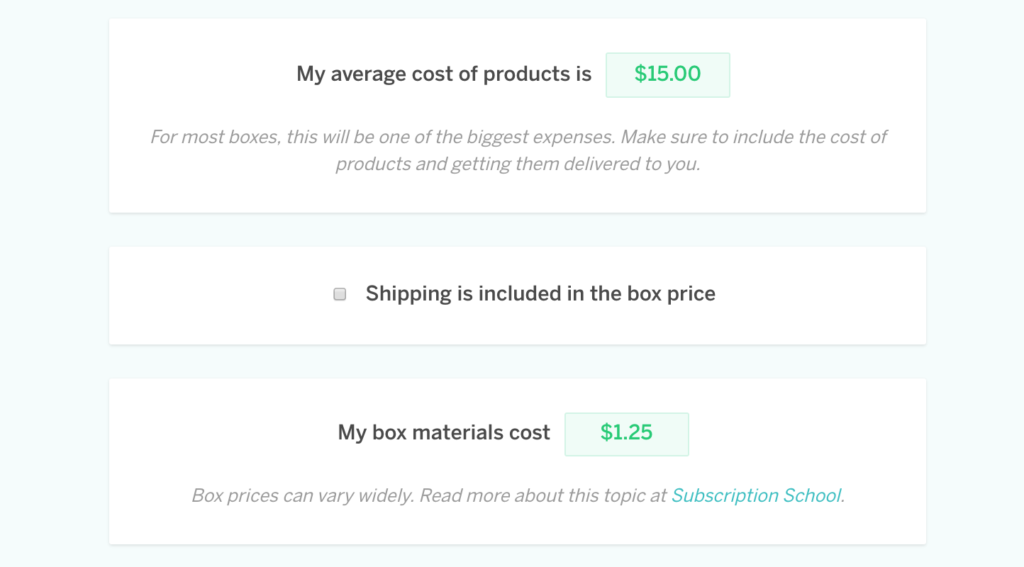
Other things to consider when pricing your box
- Product cost: the items in your box
- Box cost: your box and box accessories (stickers or stamps)
- Packing materials cost: filler paper, bubble wrap, or inserts
- Postage/shipping costs: mailing labels, packing tape, etc.
- Fulfillment costs: physically packing your box
- Transaction and platform fees: charges from your payment processor and ecommerce platform per order (Cratejoy charges 1.25% + $0.10 per transaction)
- Fixed monthly costs: Gmail fees, accounting software fees, etc.
- Acquisition costs: advertising & marketing to acquire new customers
Looking for more information on pricing your subscription box? Check out our article on cost sensitivity, conversion rates, and tiered pricing. Then take a look at our Subscription Box Pricing Guide and Startup Costs Calculator to get a head start!
Find a price that resonates with customers:
“If you’ve established a price, but feel something may be wrong with it, don’t hesitate to provide questionnaires or special offers to customers. Try to pry out details – which price points seem to resonate best with your audience? When you practice diligence in pricing, you set your business up with a foundation for a strong, sustainable stream of revenue.”
–Yogi Surprise
Step 3: Put together a prototype box
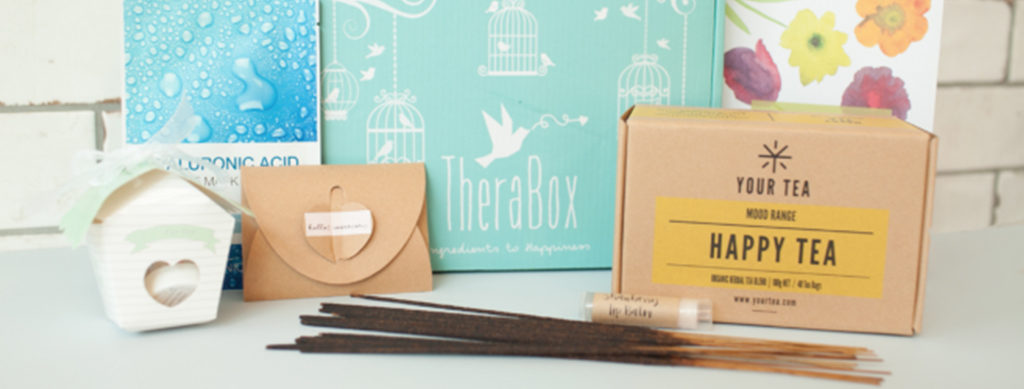
The bottom line: Create a prototype box you can market to potential subscribers.
A common misconception when launching a subscription box is that you need to have your first shipment ready to go before you start marketing. This mindset is simply not true and acting on it can slow you down in preparing for your prelaunch. (Don’t worry, we’ll cover those next!)
The point of a prototype box is to introduce potential subscribers to the types of products they will receive month after month.
Tip: A prototype box doesn’t need the exact items you plan to ship in your first month… but it should match the quantity, quality, and value of products you plan to deliver to customers once you launch.
Use your prototype box to start building an image library that you can later use for building buzz on your website, landing page, and social media accounts.
Check out this example from STEM Reads Book Club, a merchant that prelaunched with Cratejoy in the fall of 2016.
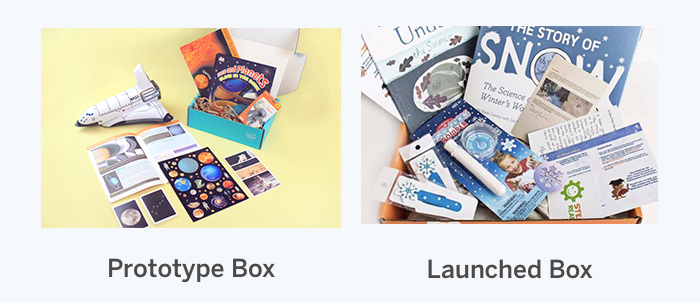
Here’s what you’ll need to do when creating your prototype box.
1. Choose your products
Again, this can be your first month’s selection of goods, but it doesn’t have to be. If you plan to ship 5-7 wellness items at a $100 value each month, round up just that: 5-7 items that represent the kind of products your customers can expect to receive once they subscribe. The key here is to not mislead with your prototype box, as people will immediately cancel if they feel they’ve been duped by your marketing efforts.
2. Choose your box
Depending on how far you are in the process, you may or may not have your box completed. This is perhaps the biggest component of your unboxing experience and is worth taking time to figure out. The good news is that once you’ve figured out your size and design, you don’t have to order 2,000 boxes to start.
Sample box: Not ready to order your own boxes yet? For prototyping purposes, you might use a standard cardboard box and stamps or stickers with your company branding.
Custom box: The main things you’ll need to consider here are your branding, design, and size. As we’ve mentioned, your box is the presentation of your business, and no matter how good the products inside may be, a subpar box can negatively affect the subscriber experience. For tips on getting your box just right, see our comprehensive guide on subscription box packaging which covers everything from manufacturing to price, order volume, box design, and more.
3. Choose your packing materials
This could be crinkle paper, tissue paper, or simply wrapping your products. For marketing purposes, we recommend starting with crinkle paper, as it won’t block or shield your products when photographed.
4. Start taking photos
Try to get a mix of flat lays, unboxing experiences, and lifestyle photos for your first shoot. Need help getting started? Check out our guide on subscription box photography for tips and tricks on these photo types.
Step 4: Begin your prelaunch

The bottom line: Build buzz to generate leads.
A prelaunch is the process of marketing your box before you launch in order to gauge interest, collect email signups, and build buzz around your upcoming launch. Most prelaunches are hosted on email signup landing pages, and for Cratejoy users, we recommend using our prelaunch website theme. It easily connects to your Mailchimp account and allows users to customize the page with their personal branding.
There are several things you’ll need to tackle during your prelaunch. We’ll cover the big ones here, but for a step-by-step walkthrough, make sure to check out our guide on setting up a prelaunch for your subscription business.
Prelaunch Checklist
1. Decide the length of your prelaunch
This could be anywhere from 15 to 60 days. You don’t want a prelaunch to extend too long, lest you lose the interest of people who signed up for your email list on Day 1. More importantly, if you haven’t reached your signup goals in two months, it may be an indication that there’s not a good market fit for your offering.
2. Set an email signup goal
Do you want to launch with 20 customers? 50? 100? Each of these numbers will be subject to the conversion rate of your list. We recommend a 10-20% conversion goal, which with the subscriber counts listed above would require (at minimum) 200, 500, and 1,000 signups, respectively.
3. Create a prelaunch page and connect your email tool
As mentioned, a prelaunch page can be fairly simple. At this point, your goal is to simply collect email addresses and nurture your list in preparation for your launch. For this, we recommend using Cratejoy’s prelaunch template from our website designer. Once you create your page, you’ll need to connect it to your preferred email service provider (we recommend Mailchimp) to start collecting email addresses. To do this, simply install the free Mailchimp app under “Apps” in the Cratejoy platform and connect it to your account.
4. Set up social media accounts and start marketing your page
Get ready to put on your marketing hat, because this is the make-or-break portion of your prelaunch. After all, it doesn’t matter how amazing your product offering is if no one knows about it! To build buzz, make sure to set up social media accounts and consider running ads or giveaways to attract signups. Facebook and Instagram are a good start.
Need a crash course in marketing? Here are a few of our guides on the most popular subscription box marketing platforms:
- Email Marketing 101
- 12 Successful Facebook Marketing Tips from Pipsticks
- Pinterest Marketing for Your Subscription Box
- How to Get the First 1,000 Instagram Followers for Your Subscription Box
- The Power of Influencer Marketing
Pro tip: On social media, consider doing a countdown partnered with giveaways and prizes for sharing notices that your launch is coming. This can provide some last-minute traction in advance of your launch date.
Other logistics to work out while prelaunching:
Once your marketing efforts are automated and underway, it’s time to get back to some of the foundational business decisions you need to make in order to launch. Tasks like product sourcing, ordering boxes, and choosing your shipping schedule are all great items to tackle during your prelaunch.
Product Sourcing
Product sourcing can seem intimidating, but once you start, it can easily become the most exciting part of your business cycle every month. From pitching vendors to negotiation to forecasting, we cover several major topics that fall under procurement in the following resources:
- Strategies for Product Sourcing for Subscription Boxes [Video]
- Subscription Box Procurement: Understanding Your Vendors, Customers, and Your Business
- 6 Tools and Tips for Subscription Box Procurement
- 7 Places to Source Products for Subscription Boxes
- 4 Strategies to Forecast Future Profits for Subscription Boxes
Pro tip: If you plan to integrate themes into your monthly shipments, try mapping out your ideas 6 months ahead. It’s a good exercise to see if your concept (as a whole) can remain fresh and exciting, and will give you a good idea of the items you’ll want to work on procuring down the line.
Listen to this merchant discuss building relationships with vendors:
“What helped me a lot was reaching out to vendors in the two months I was in my prelaunch phase. Almost all of them got back to me and we negotiated pricing. I definitely suggest starting to at least make a list of vendors you might be interested in carrying, and contacting them as early as possible; this will give you much less work to do on a monthly basis once you get the ball rolling.” –Sunday Mood
Shipping
When merchants and subscribers fully understand a box’s shipping cycle, everyone wins. (Seriously – merchants who communicate shipping details make $70 more per subscriber.) The downside? The opposite is also true.
Keep in mind: The most commonly asked question for both sub box owners and Cratejoy support is Where’s my box? When subscribers don’t know the answer to this question, they’re much more likely to churn.
For our recommended shipping schedule and information on cutoff dates, shipping windows, and renewal dates, check out our best practices guide on rebilling and shipping.
Step 5: Set up your website, Marketplace listing, or both
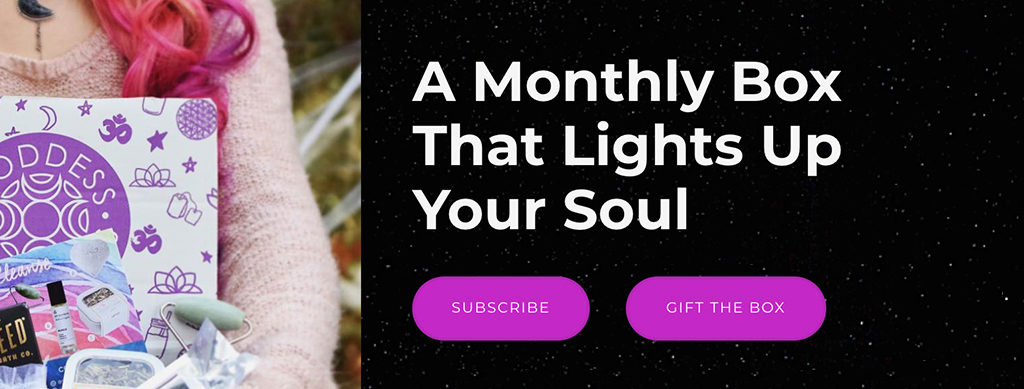
The bottom line: Set up your store to start taking orders.
Building your website can be daunting for many reasons: maybe you don’t know exactly which tools to use or don’t know how to code. Luckily, you have tons of user-friendly ecommerce platforms to choose from with code-free designers to get you started.
Pro tip: The big difference you’ll want to look at when choosing your subscription box platform is recurring billing and shipping.
Cratejoy was designed specifically for subscription box owners, and as such, we’ve built a platform that not only tackles this issue, but comes included with other subscription-focused features like a website designer, subscriber CRM, referral campaigns, analytics, a sales-ready Marketplace, and more.
Interested in learning more? Check out our full list of Cratejoy features or our competitive analysis on why thousands of merchants choose Cratejoy.
Once you’ve made your platform choice, it’s time to start working on your storefront or Marketplace listing. If you’re currently using Cratejoy’s prelaunch theme, no worries; you can work on your website theme as a draft in the background.
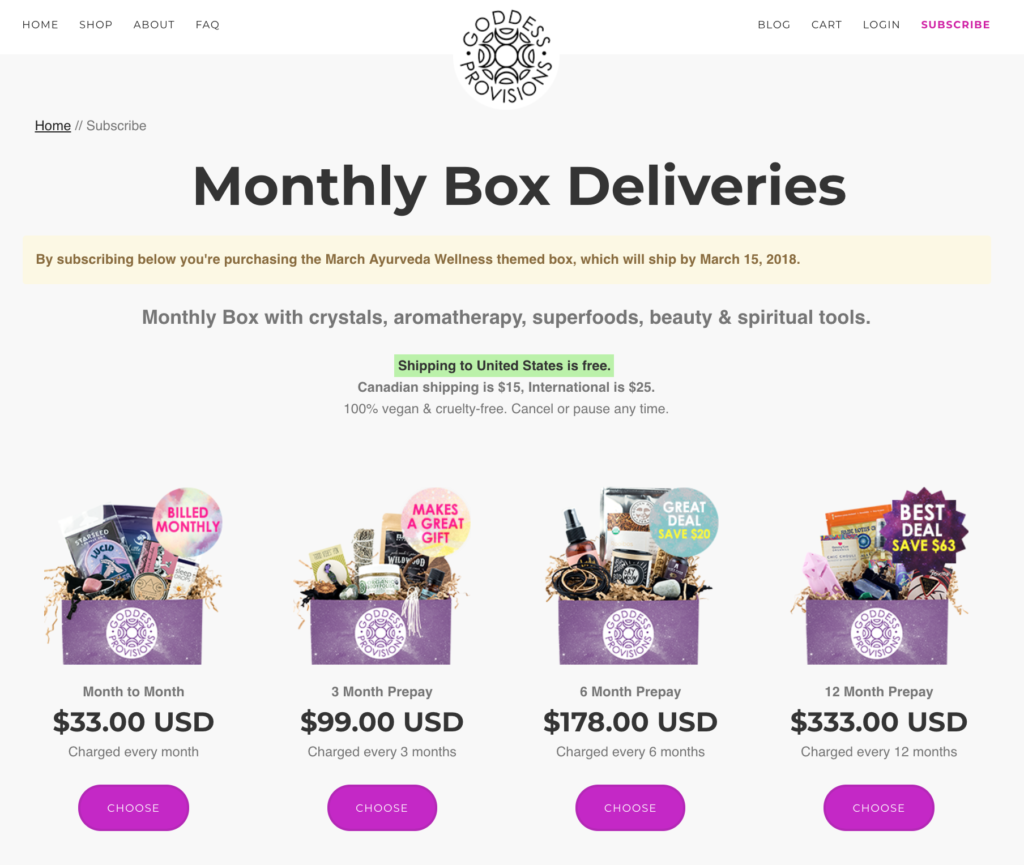
Creating your website or Marketplace listing
1. Design your website
Cratejoy’s designer is built with subscription box websites in mind. Our theme library comes equipped with several subscription-friendly templates that are easy to customize regardless of your experience with code. Simply upload your imagery, draft your site copy, and user-test the check out flow.
Have more experience with HTML, CSS, or Java? Feel free to edit your site in our code editor and bring your storefront to life.
Read more: See how to create and customize your subscription box website with Cratejoy’s guide.
2. Create your Marketplace listing
The Cratejoy Marketplace is the premier destination for subscription box enthusiasts. Moreover, Marketplace listings are free with a Cratejoy account and are incredibly easy to set up. Once your store is live and you submit your listing for approval, you’ll immediately be eligible for Marketplace marketing efforts. The Cratejoy marketing team uses numerous efforts to drive subscribers to shop on cratejoy.com, including sponsored content, email inclusion, social media marketing, radio and print ads, and more.
Read more: Set up your unique store page with our guide on how to create your Marketplace listing.
3. Set up billing and attach payment processors
It might seem dull, but setting up your payment processor is necessary before you can start accepting orders. Cratejoy recommends Stripe. Remember, all orders will be subject to transaction fees, which should be factored into your business plan and box pricing. Check out our how-to blog for guidance on connecting your payment processor.
Read more: Make sure you’ve built your checkout the way you want with our guide to setting up your payment processor.
Keep in Mind
Try not to get stuck in the weeds of building the perfect website. Perfectionism paralysis can and will stop you from moving forward in the process of launching your box.
Need more time to launch your site? Try starting with a Marketplace listing and getting subscribers from Cratejoy’s audience while building your website. That way, you’re able to grow your business while continuing to make progress on your storefront.
Step 6: Start taking orders and ship your boxes
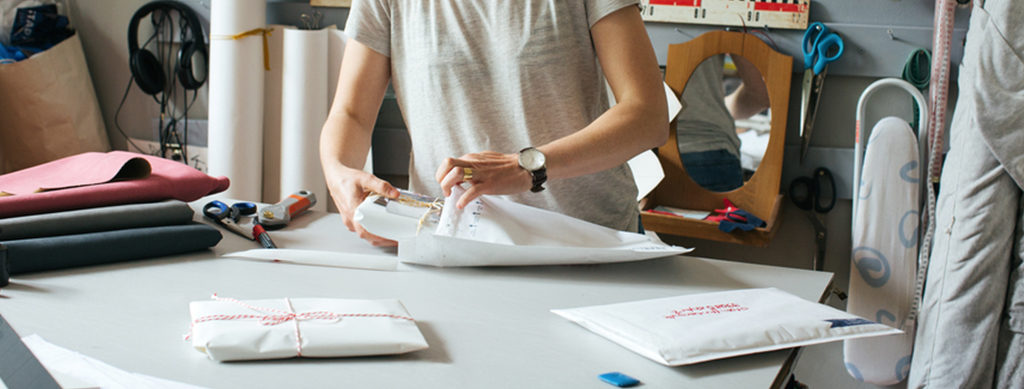
Congratulations – you made it to launch day! Over the course of your prelaunch period, you’ve been procuring products, finalizing your box design, and organizing all your inserts. As the weeks come to a close, now’s the time to bring it all together.
In this step, you should notify customers of the first ship date, make sure tracking emails are ready, and try your hand at last-minute promotions and sneak peeks to encourage more subscribers.
Pro tip: It’s paramount you make the first shipment date clear. If you’re not shipping until 45 days after you first bill customers, then make sure customers know it. This reduces confusion, lowers customer service requests, and helps keep expectation in line.
Listen to this merchant’s advice on fulfillment and shipping:
“The number one tip we have is to plan your fulfillment process and make sure that you have a smooth and orderly assembly process planned, staged, and ready. When we first started out and had smaller numbers, we could get away with boxes being staged here and there. But as we added more people to the fulfillment process, our inefficiencies became glaring. We had to break down the process and build it back up, which is very hard to do when you have to gear up immediately after getting the previous month out the door. Had we clearly defined the process from the start, we could have scaled it without any hiccups.” –Retro Pop Box
Step 7: Success! (…And getting the hang of operations)

The bottom line: Monthly recurring revenue means less worrying and more stability.
Once your first boxes go out, take a moment to sit back and reflect on your accomplishment. You just shipped your first subscription box! Now’s a good time to analyze the operations for the first month and examine how your assumptions about niche, customer, and product experience have panned out.
Questions to answer before your second shipment
- Is my customer profile still accurate?
- Which marketing channels are working, which need help, and which should I abandon?
- What about my fulfillment process slowed me down last month?
- Were there any vendors I should no longer work with or order from again?
- Were my subscribers happy? (And did I ask for their feedback?)
- Which support questions did I answer the most that I can communicate better upfront in future?
Pro tip: Customer feedback is invaluable. Whether it’s sending out surveys to find out what products they loved or simply getting reviews on your site or the Cratejoy Marketplace, feedback is the best way to improve your business, keep your subscribers happy, and even win back customers you might have lost.
Step 8: Grow your subscriber base
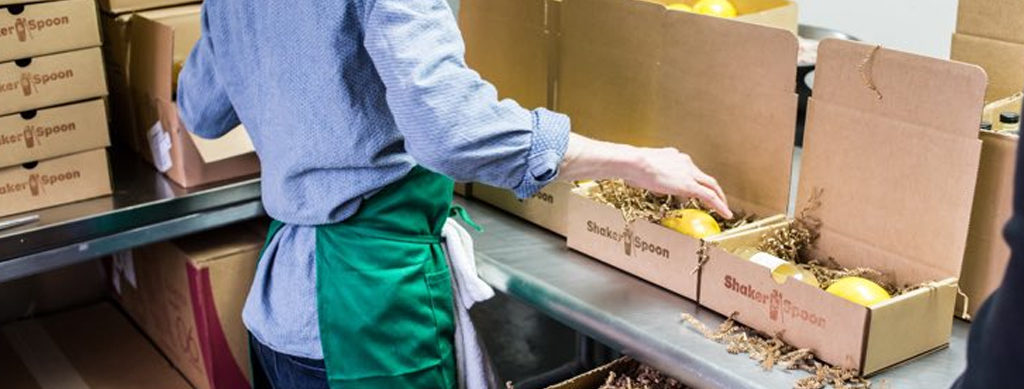
The bottom line: Continue marketing and encourage word-of-mouth referrals and sharing.
Going forward, the goal is to continue to scale your business. One of the most cost-effective ways of doing this is through word-of-mouth referrals: customers referring other customers. Numerous studies have shown that referred customers are more likely to evangelize on behalf of your brand.
Consider implementing a customer referral program, like the one provided by Cratejoy, that rewards customers based on the number of referrals they produce. Every 3 referrals = 1 free box.
Read more: Learn how to set up referral and affiliate programs in our article on how to get your first 1,000 customers.
In addition to referrals, you can dig deep into other tried-and-true marketing efforts we’ve discussed: Facebook, Pinterest, Instagram, and influencer marketing.
Take it from this merchant:
“Consistent interactions on all social media platforms have allowed us a greater level of exposure to reach and communicate with people that are interested in our baking box. It has also played a huge part in helping us stay connected with our subscribers.” –SoBakeable
What’s Next?
Moving forward, there are tons of possibilities for your subscription box business. You can continue to work on gaining subscribers for your box, or you can diversify your offering by launching new boxes or offering one-time products.
For guidance on all this and more, check out the Cratejoy business blog!
Cratejoy is the the ultimate platform for running your subscription box business. Start your free trial to see how it works.
